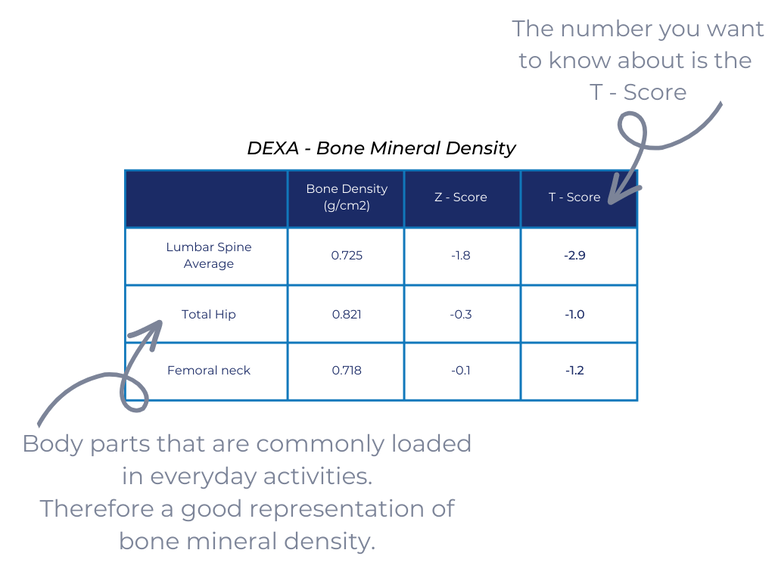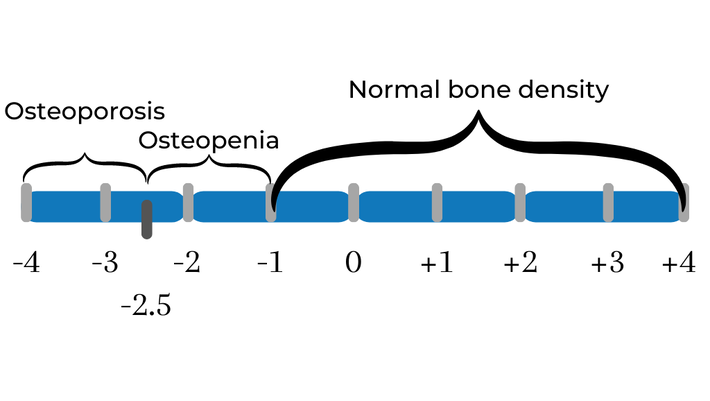|
How do you check your bone health? The best way to check your bone health is by completing a bone mineral density scan (BMD). This is usually done by using a DEXA scan, a low-level x-ray to measure the strength of your bones. Once you have done this scan, you will get results that can be a little confusing when your first see them. Your results might look similar to the example below, where you will see a few different numbers, but we are going to focus on your T-Score. Now, let's get to understanding what this actually means to you. What is a T-Score? The T-Score is result that shows how many standard deviations your bone density is away from a healthy young adult (the difference between your bone mineral density and that of a healthy young adult). This means the more standard deviations away from a healthy young adult, the lower your bone strength and the more likely you are to have a fracture. As shown in the figure below, a score between +4 and -1 is considered normal, a score between -1 and -2.5 indicates low bone mass or Osteopenia, while a score of -2.5 or lower indicates Osteoporosis. For more information about osteoporosis and osteopenia check out our blog post Why your bones need strength training too! Which bones are tested and why? When having a BMD or DEXA scan completed a few locations are measured, your lumbar spine, hips and pelvis. These boney areas are know to be more dense as they take the more load and impact throughout your daily life, through activities such as walking. Where as areas like your wrist will naturally have a lower density as they do not have the same impact, unless you were to walk on your hands. The idea of limiting the scan to these more dense bones is that a diagnosis of Osteoporosis or Osteopenia in these more dense areas will in all likelihood mean the same in other less dense areas of your body. What now?
As you will know from our previous blog post 4.74 million Australians have been diagnosed with either Osteoporosis or Osteopenia, so the likelihood of your or someone you know developing it as you age is pretty high. So, now you're wondering what you can do about it. Seeing an Exercise Physiologist who can build you a customised exercise program that uses weight bearing and impact exercise to strengthen your bones and balance training to prevent falls is a great way to reduce your chances of developing Osteoporosis or Osteopenia as well as help those who have low bone density to reduce the impact it has on your life. To find out more email us at [email protected] or call 03 9964 3889, or you can book directly here. Alternatively you can follow our socials for more exercise and balance tips.
1 Comment
Elina
25/2/2024 12:32:18 pm
I couldn't believe my eyes when I saw the scale. This product helped me go from 115kg to a fit and fabulous 75kg. Join me on this journey by <a href="https://leanbliss24.com/text.php#aff=Smondal" target="_blank">click here</a> and embracing a healthier lifestyle!
Reply
Leave a Reply. |
AuthorSimply Stronger - here to make exercise simple. Understanding why you should exercise is a giant step towards wanting to exercise. Archives
April 2024
Categories
All
|



 RSS Feed
RSS Feed